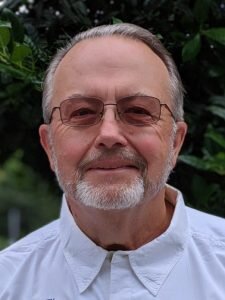(Jan. 2, 2020) OPA Environmental & Natural Assets Committee Chairman Ken Wolf, freshly reinstated to the post in October, hopes to focus the group work this year on establishing achievable benchmarks for long-standing goals.
“The real concern that I had is that we were trying to do a lot of good things and we weren’t really getting any traction,” he said. “The primary focus I wanted it to be was the environment … and the water around us.”
Wolf reassumed the committee leadership role from former chairman Tom Janasek, who stepped down after being elected to the OPA Board of Directors in 2019.
“When I stepped away, he became the chairman,” he said. “He’s somebody that is talented, responsible and understands what’s happening in the environment.”
The duo has worked together for the last several years to foster a working relationship with the Maryland Coastal Bays Program, to improve watershed health and to reduce pollution levels in the St. Martin River.
“We started working seriously with Maryland Coastal Bays,” he said. “At that time [the St. Martin River] was the worst quality water in the watershed. It’s improved marginally, but it’s still very troubled.”
Wolf, who previously served as president of Assateague Coastal Trust, installed Janasek with the group prior to stepping away to head the OPA Environmental Committee.
“Tom is on the board of directors for the Assateague Coastal Trust,” he said. “I brought him on when I was president.”
Since sounding the alarm over high pollution levels in the St. Martin River several years ago, Wolf said area environmental leaders have worked with Maryland Department of Natural Resources officials to reverse the trend.
“This is going to be an area of concentration on water quality,” he said. “We want to get the [OPA] board to buy in and step up and be involved in some of these opportunities the Maryland Coastal Bays presents us.”
Wolf said the evolving relationship with Maryland Coastal Bays now provides OPA leadership the opportunity to influence events, as opposed to remaining sideline spectators.
“Now we’re included on some of these subcommittees with Maryland Coastal Bays,” he said. “We really have to take an active role in that. We can’t just stand by and let things happen.”
Wolf said a principal area of attention related to water quality involves CAFOs, or concentrated animal feeding operations.
“It’s a factor, but more globally in the watershed, it is the primary factor,” he said. “Localized CAFOs with these massive operations is something that we want to watch.”

Photo courtesy: Ken Wolf
OPA Environmental & Natural Assets Committee Chairman Ken Wolf
was formed in 2018 after a proposed CAFO operation on Peerless Road in Showell applied for a federal water discharge permit.
Unlike previous eras the poultry industry has made recent strides to reduce waste related pollution, Wolf said.
“We’re hopeful that we’re going to see continued improvement there,” he said.
Wolf said another perk to the OPA’s growing partnership with Maryland Coastal Bays has been helping to secure state funding to improve drainage-related flooding issues.
